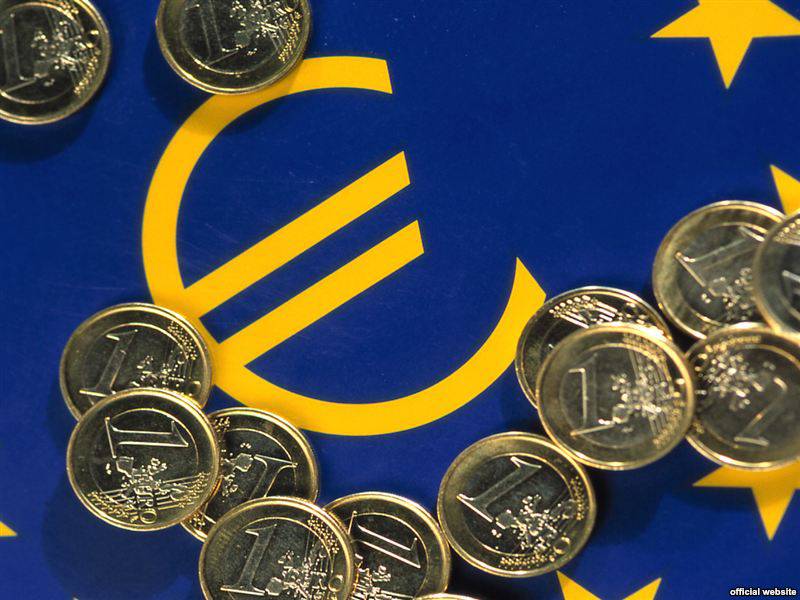Save the eurozone!

To stop the euro crisis, European leaders need to think and act bolder.
This topic is already full of edge. Bond markets turned their backs on weaker eurozone members. The leaders of the states are holding anti-crisis summits to find out how to save the euro in a decisive way. The euphoria of such rulings lasts for several weeks, days, or even hours - and it all starts over again. Will European politicians ever stop it?
Given the latest German-French summit, the answer will be negative. Federal Chancellor Angela Merkel and President Nicolas Sarkozy were forced to meet during the holiday season, because France, a leading member of the eurozone with a high AAA credit rating, was at the epicenter of negative market trends after Italy. Investors hoped that the parties would agree to expand and strengthen the European Financial Stability Facility (EFSF) or to start issuing jointly guaranteed Eurobond members.
Instead, both leaders simply reiterated previous agreements, promising tighter economic guidance in the eurozone and talking about financial transactions, harmonizing corporate taxation and a mandatory course on balancing budgets for a look. And also about even more summits with the leadership of the eurozone countries in the future.
It did not work on the markets. The next day, did the European Central Bank buy up Spanish and Italian government bonds again, spending only one week on it? 22 billion ($ 32 billion). Unusually low growth rates in the euro area for the second quarter, perhaps partly reflect a stricter fiscal policy. But they also suggest that countries with vulnerable economies will be harder than usual to get out of their debt obligations.
You can partially understand Merkel, who does not want to resort to new, decisive methods of saving the euro. Cautious in character, she is more a performer than a leader. And he is aware of the deep rejection by his voters of the idea of transferring money to economically weak and “wasteful” countries of the eurozone. It is already difficult for her to convince the coalition partners to support in the Parliament the agreement concluded in July to expand the powers of the European Foundation for Financial Stability and the possibility of redemption of the public debt. The Chancellor also takes into account the fact that the Bundesbank is categorically against a large-scale buying program by the European Central Bank of government bonds (has the ECB already spent £ 100 billion on this).
But Merkel needs to remember something else: the current plan to save the euro simply does not work. Markets continue to push Portugal and Greece to a default, although the third country to which financial aid was provided, Ireland, seems to be somewhat healthier. An attempt to limit the problems to the borders of these three states and stop the spread of the epidemic to Spain failed miserably: instead, Italy and France are in a fever, and both of them seemed to be fully solvent. A year ago there was a speech that the eurozone could deal with two or three small countries. Today, when Italy and France are heading to the edge of the abyss, the very existence of the euro is in doubt.
A fall in total currency may not seem so incredible. But it, of course, would be destructive, painful and very costly. Banks and governments of debtor countries would immediately burn. But Germany and other lenders would also pay an exorbitant price. And the consequences would be even more terrible and unpredictable: the single European market and even the European Union itself would be under threat.
Merkel should know that it is better to overpay to prevent this. Does this mean at least an increase in the European Foundation for Financial Stability, at least up to? 1 trillion Although it can not grow forever without harming the ratings of some creditor countries. It seems that we will have to demand from the ECB to continue buying government bonds on a large scale. It will also be necessary to agree to a deeper restructuring of the debt of Greece and, possibly, other countries. Finally, Eurobonds may be issued with a general guarantee.
Honesty is the best policy.
Any of all these steps has three common grounds: greater support from stronger players is needed for countries with weaker economies; in order to compensate for this, it is necessary to introduce external control over national financial policies, finally, all this leads to a political union. That's what, in fact, means loud clichés like “economic government” or “deep integration”.
The problem is that most governments do not have the authority from their constituents to move in this direction. Therefore, politicians should begin to explain to people what scenarios can be expected and what consequences they will have. If European leaders agree to a higher level of integration than their constituencies want, a backlash can ruin the European Union. That is what they are trying to prevent.
Information